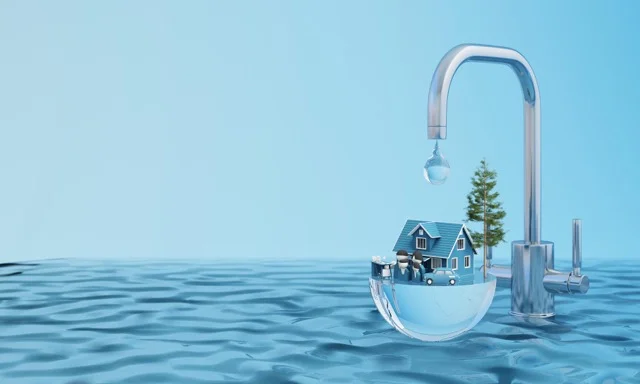7 Simple Techniques For Reclaim Waste
7 Simple Techniques For Reclaim Waste
Blog Article
Reclaim Waste Can Be Fun For Anyone
Table of ContentsNot known Incorrect Statements About Reclaim Waste The Main Principles Of Reclaim Waste The Ultimate Guide To Reclaim WasteReclaim Waste for BeginnersThe Facts About Reclaim Waste Uncovered
Discover the types, occurrences, and kinds of liquid waste. Residential sewer waste refers to the waste and products from a property septic system. This sort of waste is created by people in residences, schools, and other buildings. This only consists of septic systems that have a drain field. The correct management and disposal of domestic sewer waste need fluid waste to be moved to a sewer treatment plant where the appropriate approaches and tools are applied to cleanse and get rid of waste.
Commercial waste commonly includes prospective hazards, such as flammable materials or a blend of liquid and solid waste items, and requires an advanced and thorough disposal procedure. The disposal of industrial waste typically includes the filtering of waste prior to transport to guarantee safe and proper disposal. Industrial waste is created from by-products and overflow of commercial procedures and manufacturing.
This sort of waste can not utilize the very same sewer monitoring transport or processes as septic or industrial fluids. The hazardous waste administration procedure calls for the evaluation and screening of liquid waste before it undergoes the disposal procedure (industrial wastewater treatment). Runoff waste is the liquid waste that comes from overflow and excess stormwater in highly booming areas or cities
Runoff waste can cause contamination and flooding if not handled effectively. Find out more regarding sewer cleansing and waste administration. Ensuring correct waste administration can prevent catastrophes and reduce environmental injury. Both individuals in property settings and professionals in business or manufacturing sectors can take advantage of comprehending the processes and policies of liquid waste management.
About Reclaim Waste
Contact PROS Services today to find out about our waste administration and disposal solutions and the correct ways to look after the liquid waste you generate.
(https://www.ted.com/profiles/48198485/about)Do you recognize what happens to your water when you draw the plug, flush the toilet or drain pipes the cleaning machine? No? Well, it deserves recognizing. This so-called 'wastewater' is not only a crucial resource however, after therapy, will certainly be launched to our land, rivers or the ocean. Made use of water from bathrooms, showers, baths, kitchen sinks, washings and commercial procedures is referred to as wastewater.

water made use of to cool down machinery or tidy plant and tools). Stormwater, a type of wastewater, is drainage that moves from farming and city locations such as roofing systems, parks, yards, roads, paths and gutters into stormwater drains pipes, after rain. Stormwater streams without treatment directly to neighborhood creeks or rivers, ultimately reaching the sea.
An Unbiased View of Reclaim Waste
In Queensland, many wastewater is treated at sewer therapy plants. Wastewater is moved from residential or industrial sites through a system of sewers and pump stations, recognized as sewage reticulation, to a sewage therapy plant. City governments construct, keep and run most sewer therapy plants. Operators are accredited under the Environmental Management Act 1994 to discharge cured wastewater at an appropriate environmental requirement into waterways.
The Department of Natural Resources encourages city governments regarding managing, operating and maintaining sewage systems and therapy plants. In unsewered areas, city governments might require homeowners to set up individual or household sewer therapy systems to treat domestic wastewater from bathrooms, kitchen areas, restrooms and laundries. The Division of Natural Resources authorises the use of house systems when they are verified to be reliable.
In some brand-new communities, treatment of some stormwater to eliminate clutter, sand and gravel has started using gross toxin catches. Wastewater therapy happens in 4 stages: Removes solid issue.
Uses tiny living microorganisms recognizes as micro-organisms to break down and eliminate remaining dissolved wastes and great bits. Micro-organisms and wastes are integrated in the sludge.
Some Ideas on Reclaim Waste You Should Know
Nutrient removal is not readily available at all sewage therapy plants because it needs pricey specialised equipment. Clear liquid effluent created after treatment might still consist of disease-causing micro-organisms - industrial wastewater treatment.

A lot of wastewater moves into the sewage system. Under the Act, neighborhood governments carry out approvals and licences for ecologically pertinent activities (Periods) involving wastewater releases that may have a local impact.
Getting The Reclaim Waste To Work
Monitoring provides factual details concerning water high quality and can confirm that licence problems are being met. The info acquired via tracking offers the read review basis for making water quality choices.
Report this page